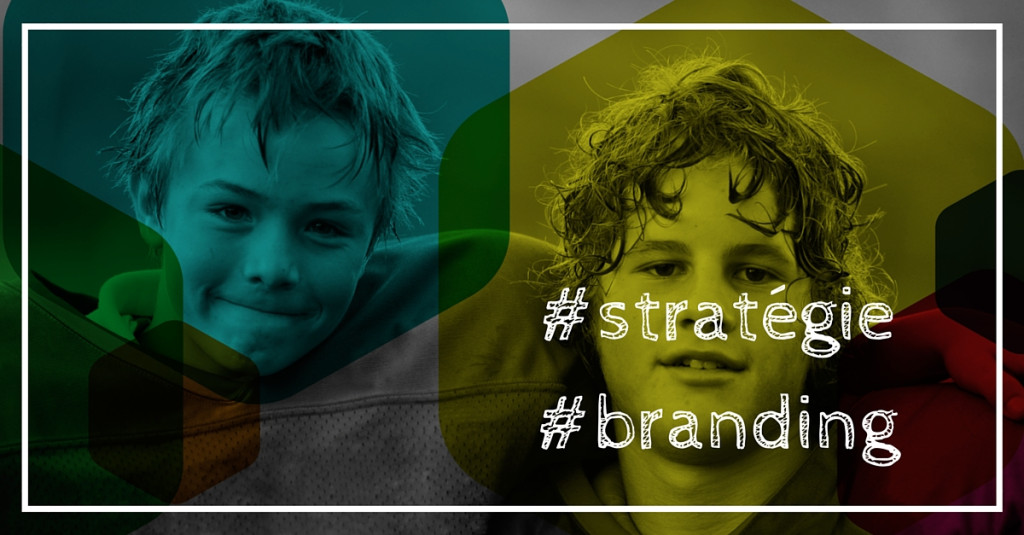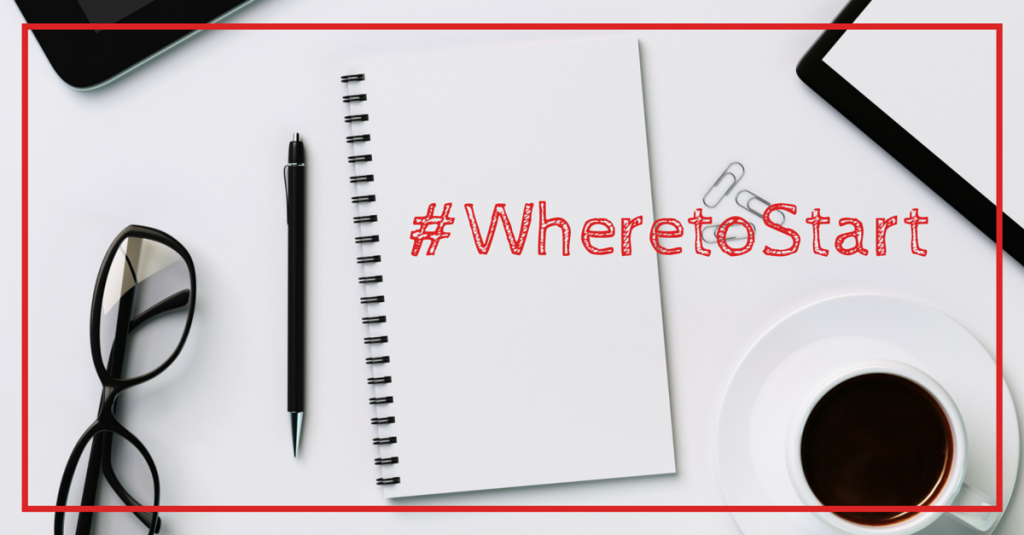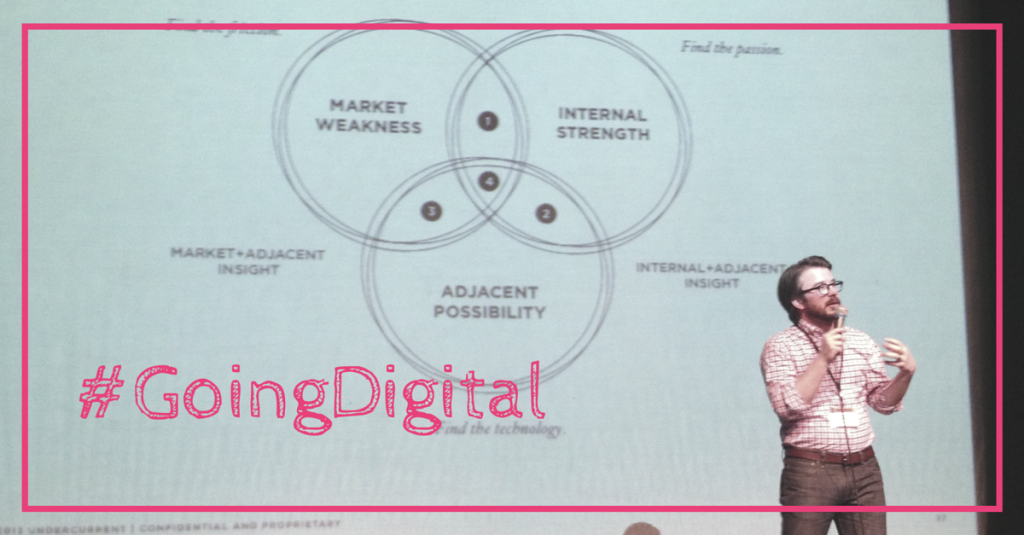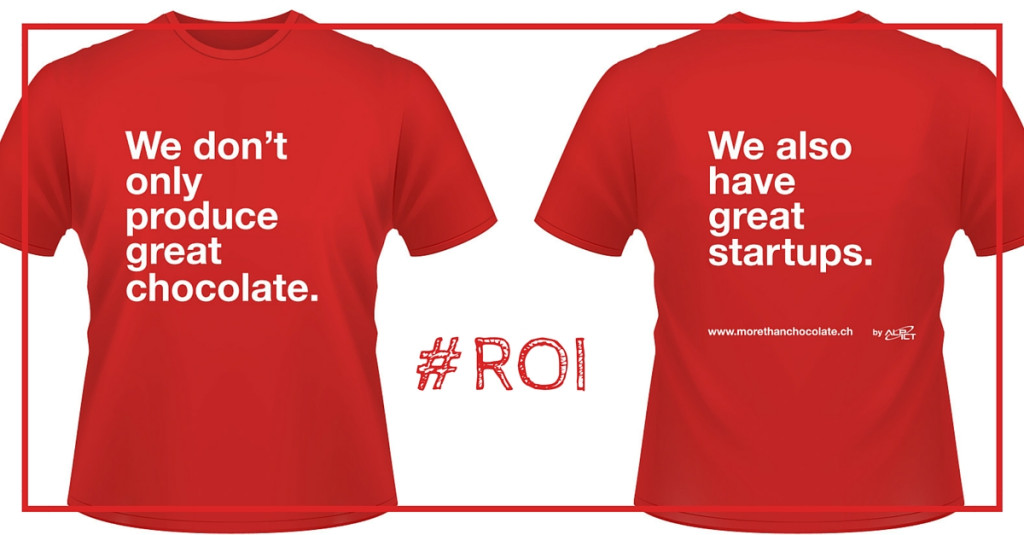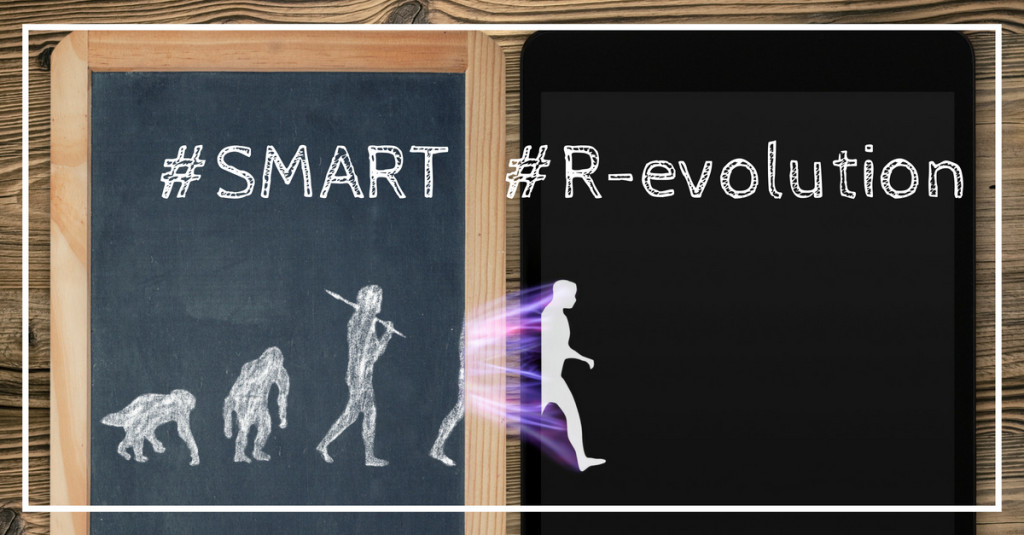No matter how hard will facebook try, I feel like they broke their toy.
When facebook started, they created a world which made it easy for friends and reconnects to share and talk. Once the fun of finding new friends comes to a close, and that you feel like being spammed by yet another silly app request, you tend to use it less, get less addicted.
Whatsmore, the lock-in syndrom and privacy issues we suffered during the last 3 years are clearly starting to alter people’s perception and therefore usage of facebook, and could jeopardize its future.
Lock in syndrom
The main problem with facebook (the same goes with linkedin increasingly) is the lock-in. You invite friends, create your tribe within facebook, but once it is there, you can take it nowhere. Facebook as chained you by not allowing you to get anything out of their platform.
You may create apps, facebook connect things in but this is a one way trip.
It probably would not be a problem if we only used this network. But when you start to have linkedin friends, facebook friends, twitter friends, plaxo and address book info, your online networking social life becomes a nightmare.
Generation divide stressing business model weakness
The main assumption facebook is making is that they can monetize your 150 million profiles by using ads and eventually targeting you and use your recommandation power to gain money out of affiliate programs.
Whilst « generation Y » does not mind using silly apps, filling people’s walls and get locked-in, they tend to be allergic to facebook’s attempts to generate revenue with them, pouring ads on their profiles.
81% of gen Y do not think ads are relevant.
30-40 people mind less the ads but those are more of the linkediniens than the facebookiens. Reason behing that when you are 35+ your preoccupation when using social networks is usually more your job and career than « writing or poking people’s walls ».
Miscommunication and continuous mistakes
It started in 2006 with the « feed » story.
The founders assumed that showing networks changes in a mini feed would be smart, and so they inititated the feature.
This generated a vast petition of people feeling facebook was going far in their privacy, not asking if they could use the data.
It was not a big deal in the end (since the info was indeed public) and was solved by adding « opt in » features in our profile to allow for users to decide for whether they wished to share, or not. But people started to feel manipulated and reacted highly emotionnally. They acted fast, solved the problem and said they would do next changes asking people about it. We thought they had learnt the lesson…
When they revealed the beacon project in 2007, they surely were not expecting for people to react emotionnally again. The main problem for facebook is that after 3 years of existence and above 8.5 million users, was still not making money neither having an effective business model.
The beacon project was THE plan. By using people’s info and exploiting their purchasing behavior, they had imagined they could get « affiliate » money out of people sharing what they liked and friends purchasing what others would get.
The project did not even came close to be launched : it scared people out so much and generated such a fierce hostility that they had to stop it right away.
Here is just an example of a few reactions : Mashable; Facebook loses retailers / Mashable; Facebook track users / Business insider / Guardian
They explained that it was not such an evil plan, and that part of people’s perception was wrong because of communication they had under estimated and misachieved. But it was there. Trust was broken.
Of course when you have 8.5 millions users then, and now 150 millions users 2 years later, which represents an amazing growth, you want to make money out of it. The main issue is that people feel fooled. They like the service and wish to use it for free but are not ready to pay for it; neither as dummy ads / affiliate generators.
Between 2008 and 2009 we see again some privacy issues. Deleting a profile seems to be impossible. More annoying, [the new terms and conditions issued in 2009, suggest facebook owns their users’ content !
|http://www.techtree.com/techtree/jsp/article.jsp?article_id=99030&cat_id=643]
Under no circumstances can a company highjack user’s content, and here, again, they go back.
Because they still can’t figure out how to work with users and believe they know better, they decided to change the homepage early this year.
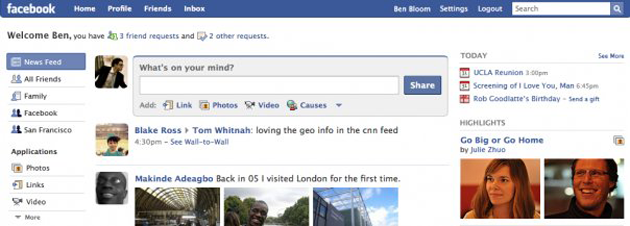
This was not a unwise decision. They start to feel the pain from twitter increasing power which they tried to buy unsuccessfully and start to suffer from their size and bandwidth costs. So the redesign is anything but a « design » decision; this is market pressure.
The problem is that here again, they make decisions without sharing and that people get made at it. See the following Poll where 94% of users polled claim hating the design or the article of econsultancy talking about the flop.
A real value problem
Not that I am saying that facebook is useless but let’s face it : the more it goes and the less people feelings about facebook get enthousiastic.
- The new interface is loosing it, showing mainly feed of news which ends up just being a twitter feed or blog feed
- Creating profiles for companies is not possibile and « within platform promotions » (sending mails, informing) is so limited that it makes it a pain to use.
- Groups are now hard to find in the new interface and attract less and less people
- Facebook by locking in people data is making it so difficult for groups that open alternatives like twitter, friendfeed, get increasing attention.
- Moreover, facebook, by concentrating on monetizing its users’s stuff and on locking us in, has lost focus and stopped innovating.
- The real value of facebook if you can only add things in, and install silly apps is not demonstrated.
90% of my news feed comes from blogs feeds I followed in netvibes and from twitter conversations.
In the end, I have figured out this week that I was increasingly considering moving outside facebook, concentrating on twitter and linkedin which is not either satisfactory as it tends to lock us in more and more but which, at least, provided me with « site core value ».
Break or make year
This year is really important for the facebook guys, and probably their last chance to make it.
Things you can do within facebook mostly depend on apps which are not made, not monetized, not controlled by facebook.
In the end, the only thing that facebook owns is YOU but you owe them not much.
- Take you tribes out and they get nothing
- Leave your tribes in and you don’t get much more
When the difference between staying and leaving is not worth much, then, there is a high danger that people, like in fashion, loose interest and leave for another trendy tool. It might be that they develop new things and really start to hire marketing boys to work with them on core value, but they won’t be able to stay like this much longer unless they really change their approach.
And you, how long will you stay loyal to facebook ? Are you happy with value facebook offers you ?
Do you feel comfortable with their new ad plan ?
Read also :
The Facebook Takes Over Top Spot, Twitter Climbs
The founder BIO
The « intense year » article made by Robert Scoble


